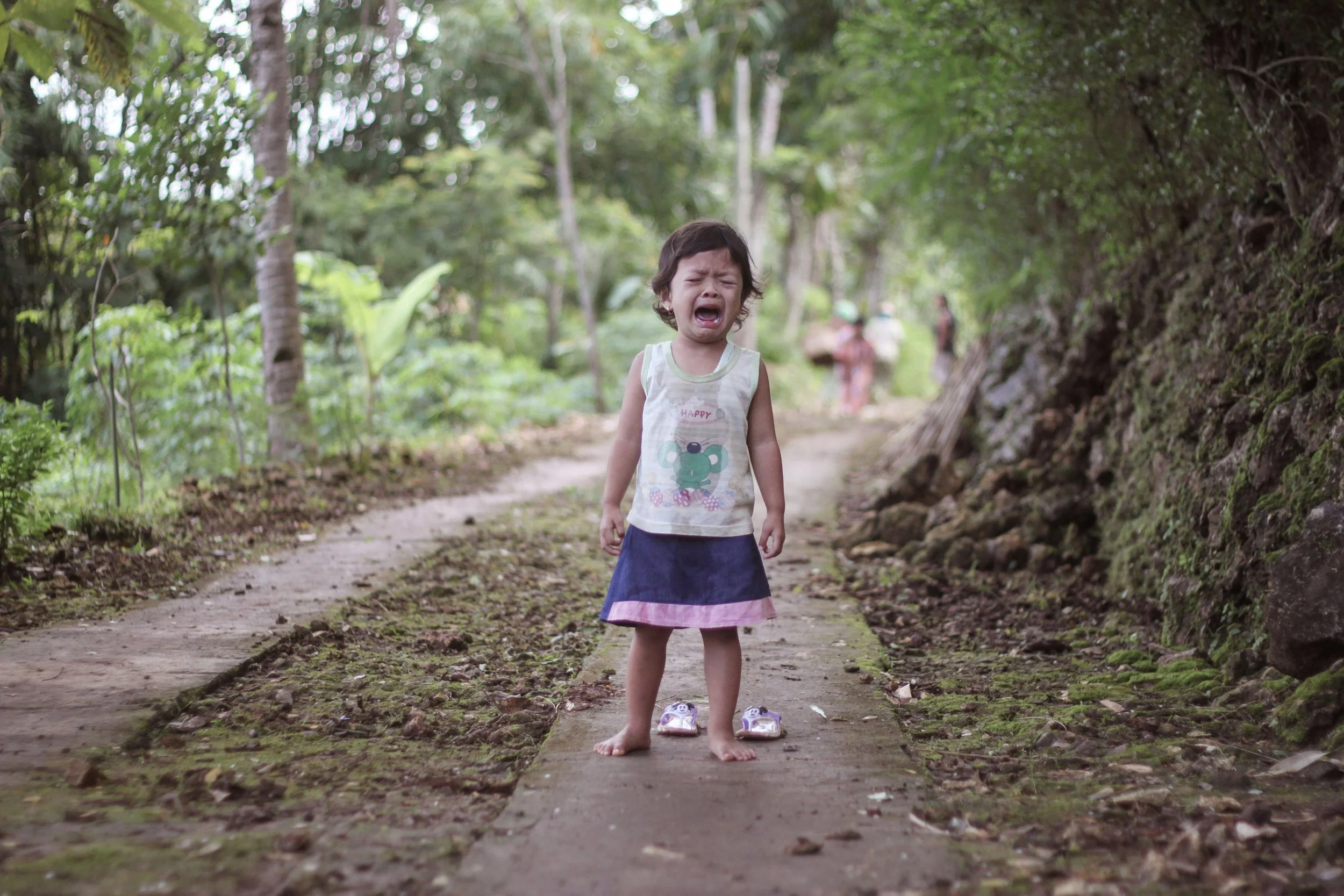Their Problems Are Not Trivial
One of the biggest things I struggle with is having empathy for others. It takes a great deal of pressure, suffering, or catastrophes to make me feel overwhelmed, so when I see people struggling with situations that would not make much of an impact on me, genuinely feeling what they feel is something that rarely happens.
I will say, however, that having kids expanded my capacity for empathy a little bit. Not empathy for my children, which we’ll discuss later, but empathy for parents, both fictional and real. It was quite unexpected the first time I felt a surge of this emotion, and it happens so often, I can’t remember the first time I faced this newfound tender area of my heart. Most recently, I recall feeling almost literal despair while watching the tv series “Waco.” Starring Taylor Kitsch (who won my undying allegiance for portraying Tim Riggins in the “Friday Night Lights” TV show), “Waco” is the retelling of the standoff between the cult led by David Koresh and the FBI in the early nineties. After weeks of tension, a number of things went wrong, leading to the deaths of many of the people trapped inside the compound, including children. The final episode of this series was almost unwatchable for me, even though I enjoyed the previous episodes a great deal. Seeing the depiction of women and children trapped inside of a burning building with no way out was overwhelming. Before kids, I could watch shows, whether they be fictional or based on actual events, with almost no investment. But something truly changed in me when I became a dad. It became impossible for me to see children in danger or suffering without imagining my children in the same situation. This change in me has extended my ability to be empathetic, but has greatly reduced my enjoyment of almost any dramatic tv show. It seems like suffering children is the fastest way to an award these days, so Hollywood does not hold back. So instead of critically acclaimed dramatic series, I spend most of my time watching “Love is Blind” and “Abbott Elementary.”
All of this, however, does not make it easier for me to empathize with whatever struggles my young children face. It is seemingly impossible for me to see their problems through their eyes. When they lose it over having the wrong color plate, throw a fit about not getting the same size treat as their sibling, or freak out over a friend at school not inviting them over for a play date, it is so easy for me to immediately remind them that these problems are not that big of a deal. When they express fears, frustrations, or struggles, my knee jerk reaction is not necessarily to belittle the problem, but I do seek to remind them how small the problem actually is.
Based on what little understanding of the adolescent mind I have gleaned in the past few years, I can tell you that putting problems in perspective is only part of the way to address the concerns my kids have. Furthermore, it is hardly ever the appropriate first course of action. From what I have come to learn, leading with empathy and validation is the first step that all parents should take when dealing with the concerns and struggles of a kindergartner. Unfortunately, the concerns of a 5-year-old are hardly ever expressed at a reasonable volume and in a calm tone. It appears that almost any inconvenience justifies weeping and gnashing of teeth. When faced with such volatile emotional outbursts, my inclination is never to validate, and always to attempt to convince the child that their problem isn’t that big of a deal.
As you can imagine, reasoning with a child in the throes of an emotional outburst rarely yields fruit. After years of failing, I think I have finally figured out that hugging, comforting, and validating feelings at their height is the only way to get to the part where we can talk about how big or small the problem actually is.
I am a Christ follower, so I believe this change in my perspective came from the still small voice that God often uses with me. One day, somewhere deep inside of me, I was reflecting on the current life-destroying lost toy my child was facing, and I felt God tell me that I do the same thing with Him.
If God is infinite, then any problem I have is comically small compared to Him. And yet, my problems often consume my thoughts, impacting every aspect of my daily functioning. When I share my problems with God through prayer, or seek His wisdom on an issue by reading the Bible, He is faithful to offer me peace and assurance, without a side of condemnation or eye-rolls about how small my problem is.
If I can have just an ounce of that same empathy with my kids, I think I can change their lives. Having a father who doesn’t belittle or brush aside problems, but sits in those feelings with them is something that will provide so much more security than having a dad who constantly makes them feel like their problems aren’t real. To them, their problems feel huge, and trying to convince them otherwise before validating and comforting those feelings will do nothing positive.
Now all I have to do is crush every part of my natural tendencies to downplay problems and seek to behave in a manner completely opposite of my nature. Should be easy.
